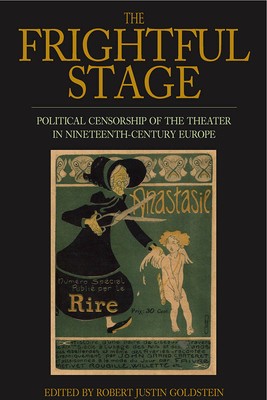
- We will send in 10–14 business days.
- Publisher: Berghahn Books
- ISBN-10: 1845454596
- ISBN-13: 9781845454593
- Format: 15.2 x 22.9 x 1.9 cm, kieti viršeliai
- Language: English
- SAVE -10% with code: EXTRA
The Frightful Stage (e-book) (used book) | bookbook.eu
Reviews
Description
In nineteenth-century Europe the ruling elites viewed the theater as a form of communication which had enormous importance. The theater provided the most significant form of mass entertainment and was the only arena aside from the church in which regular mass gatherings were possible. Therefore, drama censorship occupied a great deal of the ruling class's time and energy, with a particularly focus on proposed scripts that potentially threatened the existing political, legal, and social order. This volume provides the first comprehensive examination of nineteenth-century political theater censorship at a time, in the aftermath of the French Revolution, when the European population was becoming increasingly politically active.
EXTRA 10 % discount with code: EXTRA
The promotion ends in 23d.22:13:18
The discount code is valid when purchasing from 10 €. Discounts do not stack.
- Publisher: Berghahn Books
- ISBN-10: 1845454596
- ISBN-13: 9781845454593
- Format: 15.2 x 22.9 x 1.9 cm, kieti viršeliai
- Language: English English
In nineteenth-century Europe the ruling elites viewed the theater as a form of communication which had enormous importance. The theater provided the most significant form of mass entertainment and was the only arena aside from the church in which regular mass gatherings were possible. Therefore, drama censorship occupied a great deal of the ruling class's time and energy, with a particularly focus on proposed scripts that potentially threatened the existing political, legal, and social order. This volume provides the first comprehensive examination of nineteenth-century political theater censorship at a time, in the aftermath of the French Revolution, when the European population was becoming increasingly politically active.


Reviews